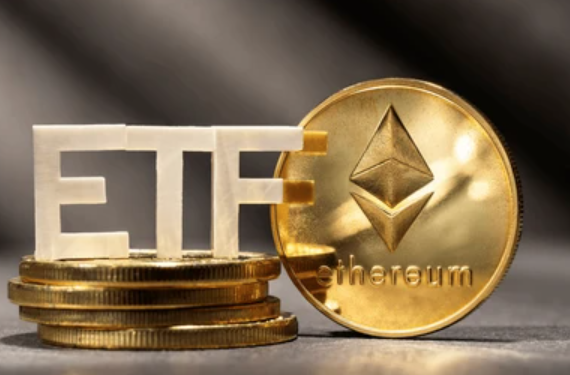
Ultima Markets App
Trade Anytime, Anywhere
Important Information
This website is managed by Ultima Markets’ international entities, and it’s important to emphasise that they are not subject to regulation by the FCA in the UK. Therefore, you must understand that you will not have the FCA’s protection when investing through this website – for example:
- You will not be guaranteed Negative Balance Protection
- You will not be protected by FCA’s leverage restrictions
- You will not have the right to settle disputes via the Financial Ombudsman Service (FOS)
- You will not be protected by Financial Services Compensation Scheme (FSCS)
- Any monies deposited will not be afforded the protection required under the FCA Client Assets Sourcebook. The level of protection for your funds will be determined by the regulations of the relevant local regulator.
Note: Ultima Markets is currently developing a dedicated website for UK clients and expects to onboard UK clients under FCA regulations in 2026.
If you would like to proceed and visit this website, you acknowledge and confirm the following:
- 1.The website is owned by Ultima Markets’ international entities and not by Ultima Markets UK Ltd, which is regulated by the FCA.
- 2.Ultima Markets Limited, or any of the Ultima Markets international entities, are neither based in the UK nor licensed by the FCA.
- 3.You are accessing the website at your own initiative and have not been solicited by Ultima Markets Limited in any way.
- 4.Investing through this website does not grant you the protections provided by the FCA.
- 5.Should you choose to invest through this website or with any of the international Ultima Markets entities, you will be subject to the rules and regulations of the relevant international regulatory authorities, not the FCA.
Ultima Markets wants to make it clear that we are duly licensed and authorised to offer the services and financial derivative products listed on our website. Individuals accessing this website and registering a trading account do so entirely of their own volition and without prior solicitation.
By confirming your decision to proceed with entering the website, you hereby affirm that this decision was solely initiated by you, and no solicitation has been made by any Ultima Markets entity.
I confirm my intention to proceed and enter this website Please direct me to the website operated by Ultima Markets , regulated by the FCA in the United KingdomWhat Is An ETF vs Mutual Fund?
An ETF is a collection of securities such as stocks, bonds, or commodities traded on an exchange throughout the trading day. In contrast, a mutual fund is a pooled investment vehicle that is priced and traded once daily after the market closes.
Key Differences:
| Feature | ETF | Mutual Fund |
| Trading | Intraday on stock exchanges | Once daily at NAV |
| Management | Mostly passive | Active or passive |
| Fees | Typically lower (avg 0.14%) | Higher (active avg 0.66%) |
| Tax Efficiency | High (in-kind redemptions) | Lower (capital gains distributions) |
| Minimums | Often none (1 share) | May require $500-$3,000+ minimum |

What is ETF?
An Exchange-Traded Fund (ETF) is a marketable security that tracks an index, sector, commodity, or asset class. It is priced and traded like a stock, offering real-time liquidity.
Types of ETFs:
- Equity ETFs – Track stock indexes (e.g., S&P 500, Nasdaq-100).
- Bond ETFs – Include government, municipal, or corporate bonds.
- Commodity ETFs – Offer exposure to gold, oil, etc.
- Sector ETFs – Focus on industries like technology or healthcare.
- Thematic ETFs – Invest in megatrends like AI or clean energy.
- Inverse & Leveraged ETFs – Used for short-term directional trades.
Traders prefer ETFs for their transparency, low costs, and the ability to execute trades at intraday prices—ideal during market volatility.

What Is Mutual Fund?
A Mutual Fund pools money from investors to purchase a diversified portfolio managed by professionals. It is priced at net asset value (NAV) at the end of the trading day.
Types of Mutual Funds:
- Equity Mutual Funds – Invest in stocks.
- Fixed-Income Funds – Focus on bonds or debt instruments.
- Balanced Funds – Mix equity and fixed income.
- Money Market Funds – Invest in short-term low-risk instruments.
- Index Funds – Track benchmarks like the S&P 500 (low cost).
- Target-Date Funds – Adjust allocation based on a retirement year.
Mutual funds are often used in long-term strategies like retirement plans (e.g., 401(k)s) due to automatic reinvestment and structured contribution systems.
Mutual Fund vs ETF Redemption Example
| Feature | ETF | Mutual Fund |
| Redemption Process | Sold on exchange (intraday) | Redeemed at NAV (end of day) |
| Liquidity | High with live market prices | Limited to once per day |
| Tax Treatment (US.) | In-kind redemptions reduce taxes | Sales may trigger capital gains |
| Minimum Investment | None or 1 share | May require $1,000+ |
Example:
Selling an ETF at 2 PM executes immediately at market price. Selling a mutual fund at the same time means waiting until the NAV is calculated after market close potentially affecting the final price due to intraday volatility.
ETF vs Mutual Fund: Which Performs Better?
When comparing ETF vs Mutual Fund performance, the better choice often comes down to net returns, costs, management style, and tax efficiency especially for U.S. investors.
Lower Costs Improve ETF Returns
- Most ETFs are passively managed, meaning they simply track an index. This results in significantly lower expense ratios, often around 0.05% to 0.15%.
- In contrast, actively managed mutual funds charge 0.50% to 1.50%, which can erode long-term returns, especially in sideways or bear markets.
Tax Efficiency Boosts ETF Performance (U.S.)
- ETFs benefit from a unique in-kind redemption process that minimizes taxable capital gains. For example, in 2023, only 2.5% of ETFs distributed capital gains, compared to over 30% of mutual funds.
- This structure allows ETF investors to retain more of their gains, especially in taxable accounts, giving ETFs a long-term edge.
Tracking Accuracy
- Both index mutual funds and ETFs can track the same benchmarks (e.g., S&P 500), but ETFs often have less tracking error due to real-time pricing and more efficient portfolio management.
- Mutual funds may lag slightly due to end-of-day execution and internal trading costs.
Reinvestment Differences
- Mutual funds automatically reinvest dividends, which helps compounding.
- ETFs offer dividend reinvestment plans (DRIPs), but they may not be automatic across all brokerages, slightly impacting performance if not reinvested promptly.
Real-World Example
A side-by-side comparison of SPY ETF vs a traditional S&P 500 mutual fund over the past 10 years shows:
- SPY ETF returned ~11.6% annualized.
- Comparable active mutual funds returned ~9.5%–10.5% due to higher fees and tax drag.
In most scenarios, ETFs outperform mutual funds over the long run due to lower fees, better tax efficiency, and more precise index tracking. However, for retirement accounts where taxes are deferred, low-cost index mutual funds may deliver nearly identical results especially for hands-off investors.
Mutual Fund vs ETF: Which One Should Beginners Choose?
When it comes to Mutual Fund vs ETF, beginners often ask: Which is better for first-time investors? The answer depends on your financial goals, risk tolerance, preferred investing style, and how hands-on you want to be.
Both investment vehicles offer diversified exposure, but their mechanics and suitability for beginners differ.
Choose ETFs if You Prefer:
- Lower Fees: Most ETFs are passively managed, with average expense ratios between 0.05%–0.15%, making them more cost-effective over time.
- Real-Time Trading: ETFs trade like stocks throughout the day, which appeals to those who want more control over entry and exit prices.
- Tax Efficiency (U.S. Investors): The in-kind redemption process means ETFs are less likely to distribute capital gains, which can help reduce tax liabilities in taxable accounts.
- Flexible Strategy: Ideal for beginners who want to start small, trade periodically, or take advantage of sector rotations, dividends, or short-term opportunities.
Choose Mutual Funds if You Prefer:
- Long-Term Passive Investing: Mutual funds, especially target-date or index funds, are ideal for retirement portfolios and dollar-cost averaging strategies.
- Professional Management: Actively managed mutual funds are run by professional fund managers who aim to outperform the market, which may appeal to new investors seeking expert oversight.
- Automatic Reinvestment: Dividends and capital gains are often reinvested automatically, making compounding easier for passive investors.
- Structured Contributions: Mutual funds are well-suited for automatic monthly investing plans, common in 401(k)s and IRAs.
If you’re a beginner seeking low-cost, flexible, and tax-efficient investing, ETFs are a strong choice especially if you’re comfortable using online brokers or mobile apps. On the other hand, if you want a hands-off, professionally managed experience, or you’re investing within a retirement account, mutual funds offer simplicity and structure.
Conclusion
Choosing between ETF vs Mutual Fund depends on your strategy, risk tolerance, and tax status. ETFs offer low-cost, real-time trading, ideal for active traders and tactical investors. Mutual funds, especially index or target-date funds, are best for set-and-forget, long-term investing, especially in retirement accounts.
In today’s volatile markets, ETFs are increasingly favored by both institutional and retail traders for their flexibility and tax efficiency. However, mutual funds still play a crucial role in long-term, disciplined investing, especially when automatic contributions and professional management are needed.
Disclaimer: This content is provided for informational purposes only and does not constitute, and should not be construed as, financial, investment, or other professional advice. No statement or opinion contained here in should be considered a recommendation by Ultima Markets or the author regarding any specific investment product, strategy, or transaction. Readers are advised not to rely solely on this material when making investment decisions and should seek independent advice where appropriate.












